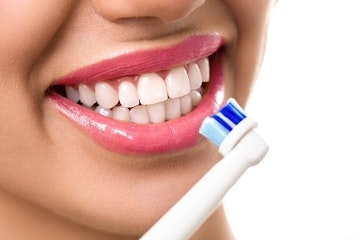Facts About Tooth Staining and Discoloration

Why aren’t my teeth white?
The colour of your teeth can be influenced by lots of factors, including the translucence of your enamel (or surface) layer, the darkness of your dentin layer underneath your enamel, the size of the tooth (big teeth have more of the dark dentin layer, which makes them look darker) and even the lighting in the room you’re in.
Then there is tooth staining and discoloration, where your enamel is tinted by things other than your teeth’s natural state.
What causes tooth staining and discoloration?
Most tooth staining is the result of two things:
- Tartar (calculus) build up
- Surface stains caused by the food and drink you consume, by tobacco or by medicines you take
Luckily, there are lots of treatment options for both kinds of staining.
How do I remove tooth stains?
Cleaning
The simplest way to remove surface stains is with careful cleaning. You can clean your teeth using best tooth brushing practices at home, and for more stubborn discoloration you can have a professional cleaning, often called scaling and polishing.
Professional cleanings are the best – and often only – way to remove tartar build up.
Bleaching
If your teeth are discoloured by surface stains, you may need to turn to bleaching. Most bleaching products use either hydrogen peroxide or carbamide peroxide (which breaks down into hydrogen peroxide) to brighten enamel colour and remove stains.
If you want to start with home options, you can find low-level bleaching products in the form of
- Whitening strips
- Bleaching pens
- Gels
- Gentle laser treatments
For more advanced stains and discolouration, professional bleaching options include:
- Light-accelerated bleaching, where the tooth is coated with a bleach gel, then treated with a light blast to accelerate the effects of the gel
- Internal bleaching
Masking
You can also mask stains with bonding or tooth veneers, both of which involve covering teeth with materials of various thicknesses that are then bonded directly to the teeth.
Remember that all of these treatment options can result in tooth sensitivity and gum irritation, so start with the gentlest treatments and get advice from your dental care professional if you have any concerns.
Call us now to make an appointment

Keep reading...
What can you drink during your Invisalign treatment
One of the rules of the treatment that patients often struggle with is the water rule. While you are wearing…
Top 6 things to know before starting Invisalign treatment
In this guide, we’re sharing six things we wish all patients knew before starting treatment. This could help you to…
How Much Does Invisalign Cost in the UK?
Instead of fixed braces, you wear a series of clear plastic aligners. These aligners apply gentle pressure to your teeth…
Does Invisalign Work? Pros, Cons, Effectiveness
Another popular method for straightening your teeth is Invisalign. This system was inspired by the clear plastic aligners that are…

Hear from our
happy patients
These are just some of the kind words about our practice, direct from our incredible patients.









